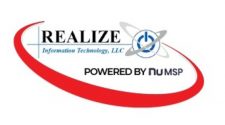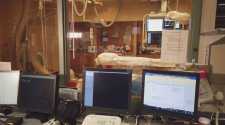Opportunities to utilise emerging technologies across the industry are varied and complex. So how can engineering firms identify the right solutions?
Identifying new technologies and exploring ways they can improve efficiencies and reduce costs is a complex task for the civil engineering sector. Perceived costs and risk aversion are often barriers to the adoption of emerging technologies.
But software provider Deltek is determined to help engineers and project based businesses navigate these challenges.
The annual “Deltek Clarity Architecture & Engineering Industry Report” includes the results of a survey which identifies the key challenges facing engineering and architecture firms, highlights opportunities and forecasts future trends.
Helping firms drive competitiveness
The survey also seeks to understand how technology is already helping firms drive competitive advantage and efficiency.
“The report is really focused on providing architects and engineers with a view of what’s happening in the industry,” says Deltek regional vice president for EMEA and APAC Neil Davidson.
“What are the market conditions? What are the industry trends? What are the benchmarks of other companies?
“But it is also intended to provoke some of these companies to think bigger than they are currently; to get out of just the everyday, and really challenge them to continue to improve the way that they run their businesses.”
The biggest proportion of the survey respondents – 29% – was UK-based, and of this 60% were from the engineering sector and 40% from architecture.
Davidson explains that the report provides an opportunity for engineering firms to gain some insight from the wider industry that can then be fed back into their businesses.
“[The report] gives them a platform to have conversations within their own companies and with their teams, to start to figure out ways that they can work towards a higher level of performance,” he adds.
Online survey
The survey, which was conducted online and gathered 600 individual responses from engineering and architecture firms, highlights several emerging technologies expected to have a significant impact on both sectors.
Artificial intelligence (AI), the Internet of Things (IoT), Big Data and geolocation continue to be the main areas where Deltek is seeing the most traction and interest across businesses.
“There’s also a lot of conversation about IoT pairing with digital twins and the new dynamic there,” says Davidson. “I think it will be really interesting to see how some of these technologies start to come together.”
While there is parity among engineering and architecture firms in the top technology trends, approaches to AI vary. The report found that a resounding 72% of engineers view AI as important for their business, while just 44% of architecture firms said the technology was important.
Davidson believes this disparity is because engineers are involved with the design, construction and maintenance of assets, where there is a wealth of data about asset use. Architects are more closely associated with the design stage of a project, while engineers have more insight across the entire asset lifecycle so have more opportunity to identify where AI can improve processes.
“There’s significant scope for these new technologies to help automate and streamline processes in production,” says Davidson.
Using AI to reduce errors
Engineers are starting to look at how AI could help to reduce errors and tackle design challenges,” he says.
Davidson points to firms such as engineering consultancy Sweco which is using machine learning to boost construction productivity, and Ramboll which is using AI and 3D scanners to deliver a major road project in Sweden.
Davidson also underlines the potential for AI to help improve collaboration between designer and client over the course of a project.
“I think there’s a huge opportunity for better project outcomes, because having that intelligence up front can really help the client and designer better understand what the ultimate goal is and monitor it throughout,” he says.
“You can make sure that everything is on track so that you’re not waiting until the end of the project and faced with the surprise that this isn’t really what the client wanted or it isn’t delivered the way they expected.
“The technology allows clearer checkpoints along the way to better facilitate that end goal.”
But what are some of the barriers facing engineering firms as they look to adopt these new technologies?
Davidson is confident most engineering firms are in a good position to drive the uptake of AI and other emerging technologies, but admits there is more work to be done.
Real world application
“There is a good understanding of the benefits of these technologies, but there needs to be more understanding of how they can be applied in the real world,” he explains.
“It’s about making that connection between these emerging technology trends and what they actually mean for your business.”
The starting point for firms looking to embrace new technology, insists Davidson, should be creating a comprehensive strategic plan.
“Businesses often know what they want to do, but it’s about carving away the time from project deliverables, which is the lifeblood of what they do every single day, and giving them the opportunity to really focus on [creating a strategic plan],” he says.
This clear strategy should outline how a company will prioritise technology trends and empower employees to explore new approaches.
“This isn’t just driven from leadership. Employees have to be confident that they’re working in an environment that won’t stifle these opportunities,” says Davidson.
“You have to give your people the ability and authority to drive this forward.
“One of the biggest barriers is ensuring they have freedom to take ownership of this.”
Deltek is continuously looking at ways to support its clients’ efforts to tackle these issues and identify the right solutions for their businesses.
Cloud-based system
For example, the company has helped engineering consultant Mott MacDonald transform its internal business infrastructure with a cloud-based Enterprise Resource Planning (ERP) system.
ERP allows businesses to integrate corporate and project financial data into one system, allowing improved visibility and control over areas such as accounting, procurement and human resources.
Implementing an ERP system can be challenging, explains Mott MacDonald chief digital officer Darren Russell, so working closely with Deltek was critical.
“One of the things about Deltek, and why they won our evaluation process, was the culture,” Russell says. “We wanted a company that we felt we could work well with and understood our company needs.
“We have always been able to have those needed conversations and make sure we resolve situations so we get the best possible solution for Mott MacDonald.”
Improving project management
Engineering consultant ByrneLooby has also implemented a Deltek ERP system to improve the management of project, client and staff data.
“We have been on an acquisition trail within our organisation that has exposed us to many ERP and accounting systems within the professional consultants industry and we certainly have not seen anything yet that beats Deltek,” insists ByrneLooby finance director Owen O’Leary.
The engineering firm is planning to grow significantly over the next two to three years and O’Leary is confident Deltek’s scalable solutions will be increasingly important in facilitating this expansion.
Whether Deltek is working with ByrneLooby, Mott MacDonald, or a tranche of other clients from across the industry, the focus is on delivering tailored solutions that help to unearth problem areas and identify potential opportunities, ultimately helping its customers make the right business decisions.
“When we look at the solutions we provide, we look at them through the lens of what we call ‘purposeful innovation’,” Davidson explains.
“We’re not just looking at specific requests from our customers, we’re taking a holistic view of how we can use technology to provide solutions and make their processes more efficient.
“It’s not just about focusing on new technology because it’s the latest trend. We focus on what makes sense for our customers.”
- Published in association with Deltek
Like what you’ve read? To receive New Civil Engineer’s daily and weekly newsletters click here.

















